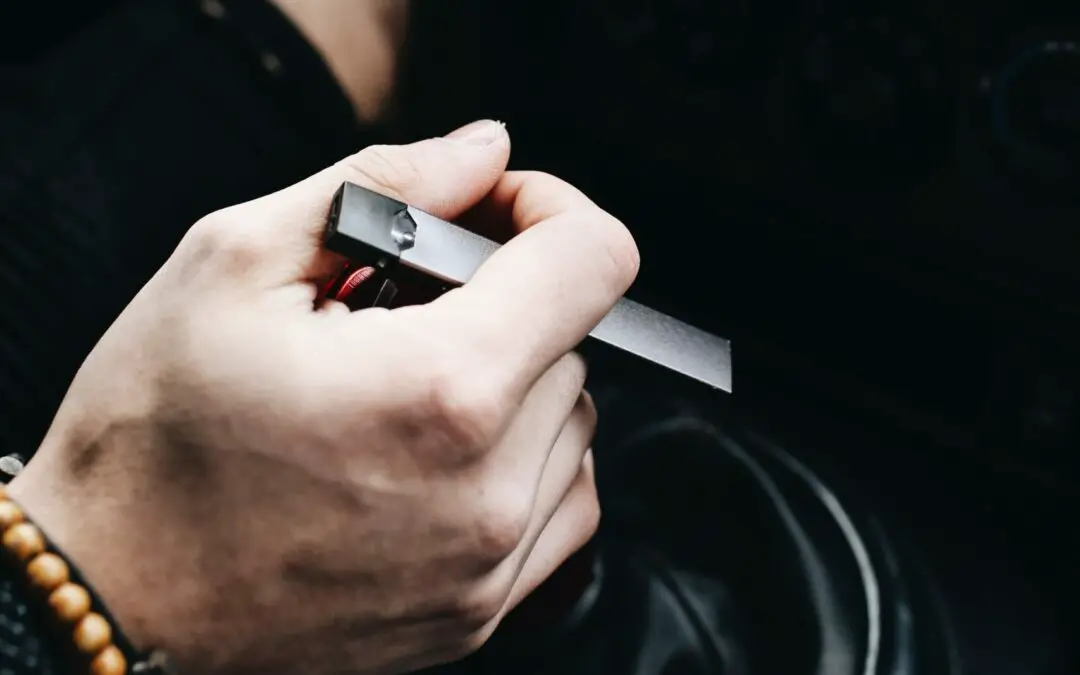This post contains affiliate links.
There is an ongoing debate whether vaping is healthier than tobacco smoking, and it does seem like favor is leaning towards vaping, although it's still not considered “healthy.” But whether we choose to vape or smoke, both of these activities are still prohibited when in or on the property of others. The question is, however, would they know if we vaped, and how could they know this?
Car rental companies can detect vape residue on surfaces when the device is extensively used in enclosed areas. However, vape “smoke” only has an odor once the preferred liquids are heated but instantly vaporizes in the air; therefore, it does not necessarily cling to furniture or leave a smell.
Vaping devices create a potent “smoke,” or clouds as they are more commonly referred to, which leaves a residue on surfaces, but how damaging is this to a car's interior, and can it be cleaned? Let's take a look at how rental companies can know whether you vaped in the vehicle and what devices and liquids might be more potent than others.
How Would Car Rental Companies Be Able To Tell If You Vaped?
To know if vaping affects the interior of a car, we must first take a look at what’s in a vape.
The vaping juice that's heated to create “smoke” consists of mostly propylene glycol, vegetable glycerin, food flavorings, nicotine, and, on particular orders, cannabis.
Since the e-cigarettes' inception, created by Hon Lik, there have been a lot of questions regarding its function and ingredients. However, unlike cigarette smoking, Vaping is heated and not burned; it creates vapor instead of smoke.
Some of these devices consist of a more significant portion of nicotine, whereas others are filled with greater quantities of flavor. All of these devices create vaporized liquids, but their extent and thickness are what cause a residue.
Companies that have created vaping devices have also focused on disposal devices with higher nicotine quantities that create less “smoke” due to their altered heating process. This is difficult to detect as there is only an initial smell that soon dissipates.
The device that creates the most “smoke” is known as “mods.” This modifiable device is often filled with rich flavors and altered to produce vast amounts of “smoke.” When a device like this is used in a small enclosed space, like a car, it can create a residue, especially on the windows.
Remember that although vaping is not traditional smoke, it's still heated syrup which can cling to a surface. However, people who enjoy vaping only complain of this residue after extensive use. Depending on how much you smoke at a time and how often will depend on the extent of residue left in the enclosed space.
Something as simple as opening up a window in the car might already help with this problem. Still, if companies are deliberately looking for vaping residue on windows, it might be best to clean the car before returning it.
What Are the Consequences Of Vaping In A rented car?
Smoking in a small enclosed area, like a car, can create a residue on the windows after extensive use. Although vaping does not create lasting damage, if it breaks the rules created by the owner, there will be consequences.
Turo is well known for its no-smoking policy that prohibits guests from using any smoking-related products in the car, including vaping and marijuana. If there is any evidence of smoking in a car, the host can report an issue to Turo that will be investigated.
If the evidence supports the claim, a violation fee of $250 will be charged to the violator plus an additional process fee of around 3% to remove the offender from Turo. It’s vital to remember that if sufficient evidence is found to support the claim, the accused will not be able to appeal the action.
Vaping devices do not share the characteristic of cigarettes with burned particles that cling to furniture and, therefore, are not as harmful. Regarding vaping, liquids are heated and create “vape smoke,” which is similar to what warm water does in a shower. These particles are light and disappear almost instantly when mixed with the air.
This means that there will be no significant damages to a car that needs to be repaired or replaced when vaping.
Although the quality of the air is not drastically compromised when vaping, the liquids will cause a residue on any surface. After extensive use, this residue that clings to the surface does not cause a color change or cause irremovable stains but can be detected by the owners of a car.
So, even though vape smoke is not as damaging as cigarette smoke, vaping does create a residue that needs to be cleaned and can be spotted by people responsible for the standards of the car.
How To Clean An Enclosed Space After Vaping?
The residue and stains from cigarette smoke will be challenging to remove, but the vaping residue is far easier to clean. Some of the ingredients, especially vegetable glycerin, can cause a film on windows that needs to be cleaned often.
Let's take a look at some standard solutions that vape smokers have used to remove residue.
Vaping enthusiasts who use their devices constantly in enclosed spaces mention that vinegar and water can clean stains and film from windows.
Luckily, this film is not hard to remove and can be cleaned in simple ways. Other people have found effective solutions with regular window cleaner, warm water, and a wash-up soap.
Often, a simple sponge or cloth will be able to remove the residue without resorting to the use of any chemicals. A damp towel and elbow grease can yield beneficial results within minutes.
Conclusion
In conclusion, there is a residue left on windows from using a vape device extensively. However, removing these stains is quick and straightforward and only takes a few minutes. Remember that film on windows due to the use of a vape will not be looked upon favorably if there were explicit instructions to restrain from it by the car rental company.


